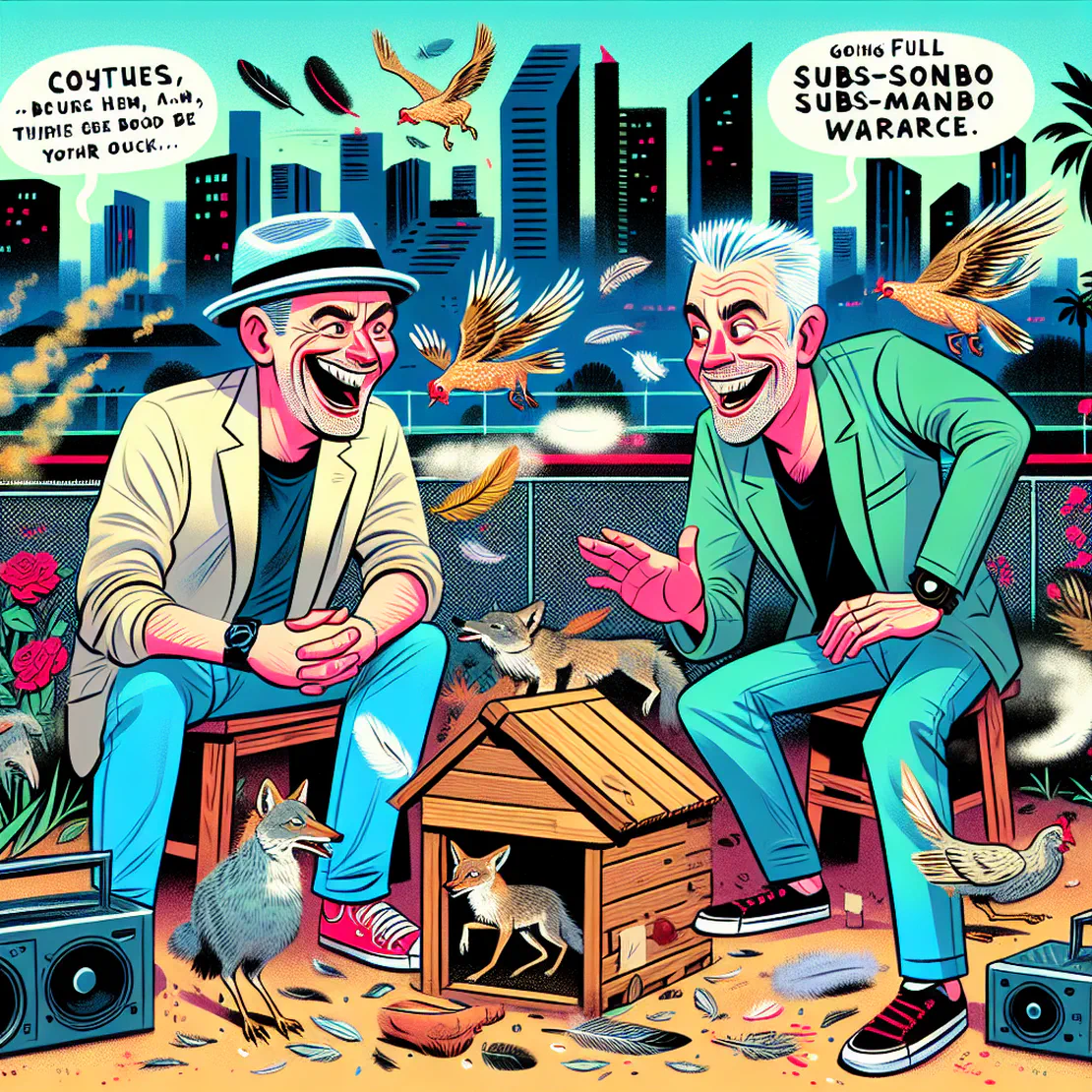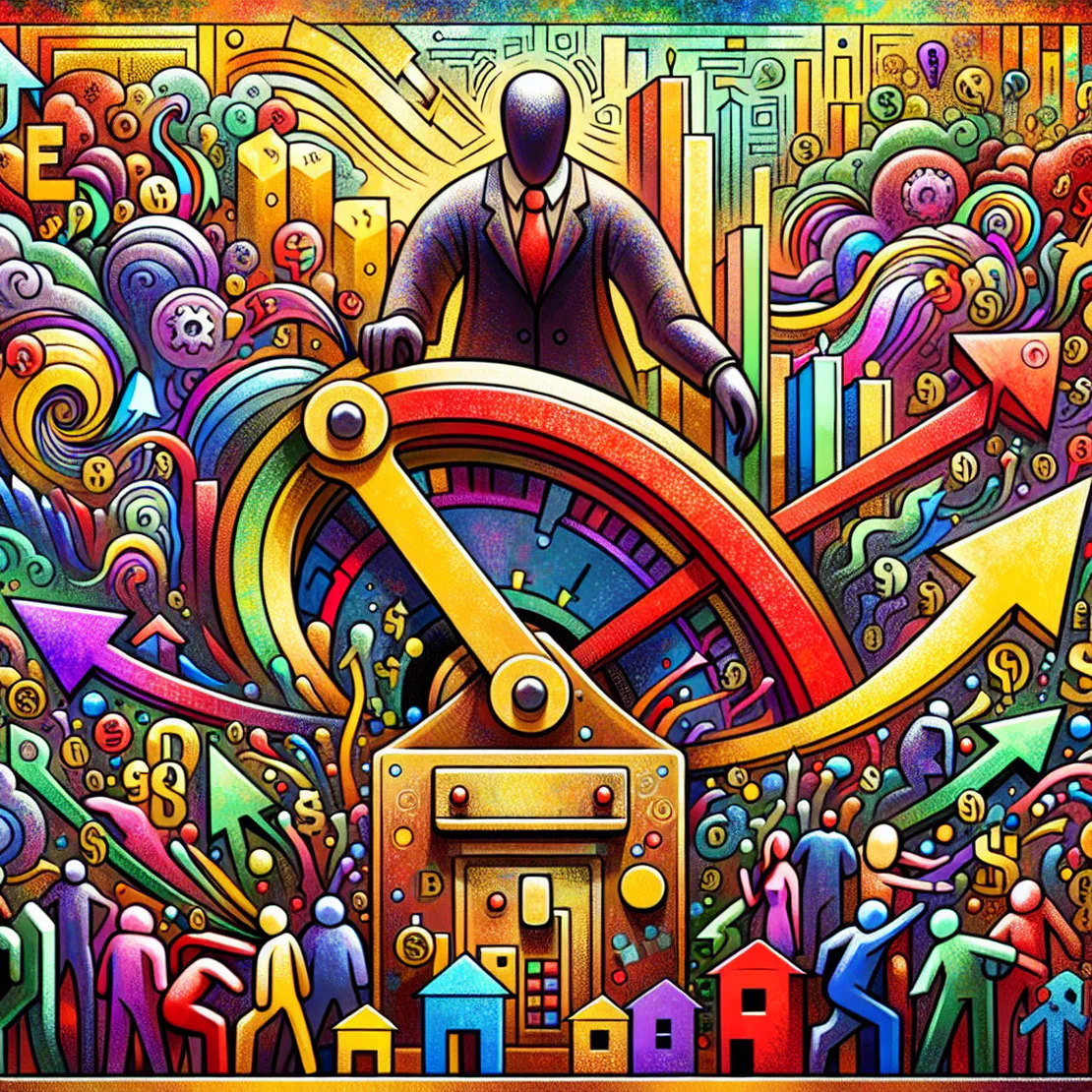
413 - President Lip Reading & The Real Emily In Paris
- The Tim Dillon Show
- Comedy
- October 19, 2024
Table of Contents
At a Glance
-
Serious Insight on Political Power - ‘It’s not about whose ideas are better. It is a raw power struggle.’ This statement underlines the speaker’s perception of current political dynamics not as a debate over policy but as a battle for control.
-
Cynicism about Political Figures - ‘Joe Biden… knows just enough to know why he was thrown out in favor of Kamala Harris.’ Highlights the speaker’s belief in the manipulative and dismissive nature of political alliances and leadership decisions.
-
Critique of Media and Public Demand - ‘People are demanding realism from Emily in Paris but not from the government or the news.’ This ironic observation critiques public priorities, suggesting a misplaced focus on entertainment realism over real-world transparency.
-
Humor in Market Betting - ‘Will your neighborhood Chili’s be taken out by Hurricane Milton?’ A humorous hypothetical bet that mocks the unpredictability and sometimes absurd nature of betting markets.
-
Dark Humor about Political Conversations - ‘Can we shoot her?… Michelle brought that up the other night.’ This imagined dialogue between political figures uses dark humor to underscore perceived ruthless strategies in political upper echelons.
-
Reflection on Social Media’s Impact - ‘If that guy [a wealthy celebrity] cannot be happy, what chance do the rest of us have?’ Points to the broader societal issue of happiness and mental health in the age of social media, emphasizing its pervasive impact.
-
Satire on Legal and Insurance Industries - ‘I enjoy car accidents now because of Morgan & Morgan.’ This sarcastically comments on the aggressive advertising and client acquisition strategies of personal injury law firms.
-
Exaggerated Promotion of a Product - ‘Helix or nothing, Helix or bust.’ This over-the-top endorsement of a mattress brand parodies the often exaggerated language used in advertisements.
Each point reflects a combination of serious commentary, cynical views on politics and media, and humor used to critique various aspects of society and consumer culture.
What to Do
-
‘Think as an adult’ - Encourages mature and critical thinking beyond mere partisan or simplistic views.
-
‘Zoom out’ - Suggests considering broader perspectives to understand complex societal issues better.
-
‘Start your free online visit today’ - Advocates taking proactive steps towards personal health and well-being.
-
‘Trade on your knowledge’ - Encourages using one’s understanding and insights to make informed decisions or investments.
What to Get
- Not Much Here
Summary
The transcript from this podcast episode reveals a dynamic and intense conversation centered around several pressing and controversial topics. The speakers delve into political and societal issues, reflecting a deep sense of urgency and concern about current events.
One of the primary topics discussed is the political landscape in America, particularly focusing on figures like Joe Biden and Donald Trump. The speakers express skepticism about the genuine intentions and capabilities of these leaders, suggesting that there is a disconnect between the visible actions of these figures and the invisible forces of power that influence them. For instance, there’s mention of Biden being “put out to pasture” because the system lost faith in his ability to sell their agenda to the country. Similarly, Trump is described as someone who does not align completely with the invisible dimension of power, choosing instead to follow his own path when it aligns with his interests.
The discussion also touches upon the role of the internet and social media in shaping public discourse. The speakers highlight how the internet provides a platform for alternative narratives and uncensored information, contrasting sharply with past times where mainstream media, allegedly influenced by powerful corporations and even the CIA, dominated public perception. This shift is seen as both exhilarating and terrifying, as it democratizes information but also adds to the chaos and uncertainty of the current times.
Additionally, the conversation includes a critique of societal and cultural representations in media, using the TV show “Emily in Paris” as an example of how media often chooses to portray an unrealistic, sanitized view of the world that ignores deeper social issues. This is juxtaposed against a call for more realism in media portrayals, although the speakers also acknowledge the value of escapism in entertainment.
Overall, the episode paints a picture of a world at a pivotal moment, grappling with the power struggles within its leadership, the transformative impact of technology on communication, and the ongoing debate over the role of media in reflecting societal truths versus providing escape. The tone is one of critical reflection, urging listeners to ponder the deeper forces at play behind the visible façade of politics and media.


